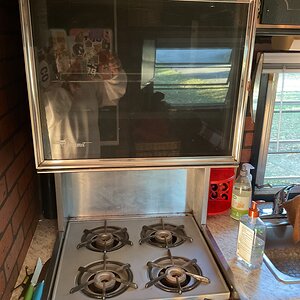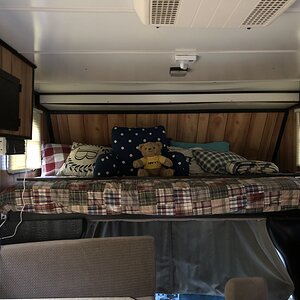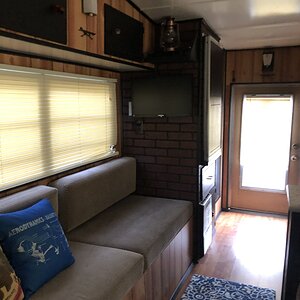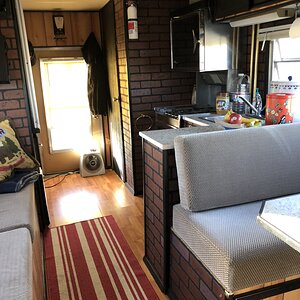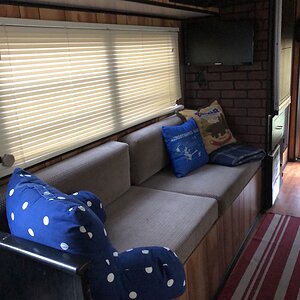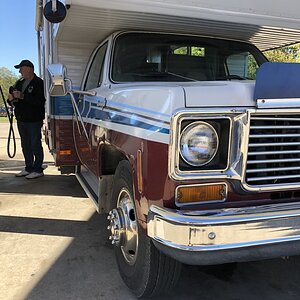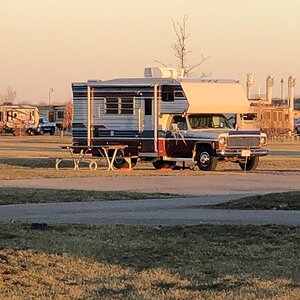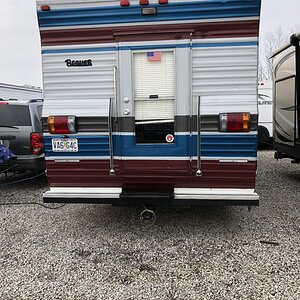kje1977
RVF Regular
- Joined
- Aug 6, 2022
- Messages
- 6
- Location
- U.K
- RV Year
- 2004
- RV Make
- Ford
- RV Model
- Monarch SE
- RV Length
- 10m
- Chassis
- Ford
- Engine
- 6.8L
Hi all
My RV is a Ford Monarch SE and has developed a hydrogen sulphide (rotten egg) smell in the cab but only when driving. I was wandering if someone could help with potential diagnosis, with info as follows.
1) There is nothing in the water system or toilets and in any case, it only smells when driving.
2) The catalytic converter is still on and there are no smells on the exhaust outlet.
From these suspected batteries, so following info is also important
House batteries
1) House batteries are charged by solar and engine when running. There are in 2 x banks of 2 ( eg. 2 x 6.5V = 13V but 2 banks to provide amp hours)
2) On inspection, some had lost liquid level so I topped up with distilled water - the problem still happened
3) Used a multi meter and voltages ok when engine on and off
4) No evidence of battery overheating etc.
Engine battery
1) Relatively low voltage at 12.2 - I usually leave this unhooked as I suspect a drain somewhere.
2) When engine on, multi meter reads 14.1 - 14.5V across the battery terminals
3) After running idle for 30 mins, battery charged to 12.8V. Battery not hot and electrolyte present.
4) No smells from idling for 30 mins but does smell after driving the RV for 15 mins. Smells come when accelerating
I'm at a loss other than an exhaust manifold leak before the catalytic converter, but haven't checked this
Any ideas or contacts over who to see? (I'm in UK).
Many thanks
Kris
My RV is a Ford Monarch SE and has developed a hydrogen sulphide (rotten egg) smell in the cab but only when driving. I was wandering if someone could help with potential diagnosis, with info as follows.
1) There is nothing in the water system or toilets and in any case, it only smells when driving.
2) The catalytic converter is still on and there are no smells on the exhaust outlet.
From these suspected batteries, so following info is also important
House batteries
1) House batteries are charged by solar and engine when running. There are in 2 x banks of 2 ( eg. 2 x 6.5V = 13V but 2 banks to provide amp hours)
2) On inspection, some had lost liquid level so I topped up with distilled water - the problem still happened
3) Used a multi meter and voltages ok when engine on and off
4) No evidence of battery overheating etc.
Engine battery
1) Relatively low voltage at 12.2 - I usually leave this unhooked as I suspect a drain somewhere.
2) When engine on, multi meter reads 14.1 - 14.5V across the battery terminals
3) After running idle for 30 mins, battery charged to 12.8V. Battery not hot and electrolyte present.
4) No smells from idling for 30 mins but does smell after driving the RV for 15 mins. Smells come when accelerating
I'm at a loss other than an exhaust manifold leak before the catalytic converter, but haven't checked this
Any ideas or contacts over who to see? (I'm in UK).
Many thanks
Kris

